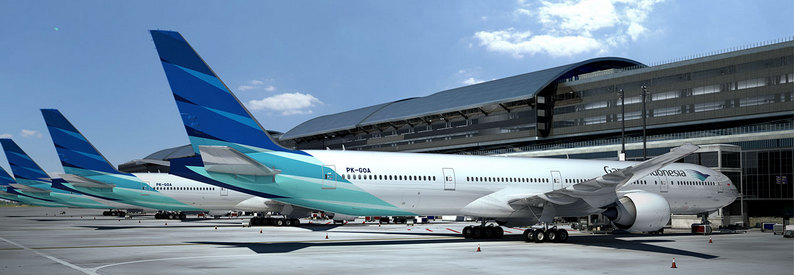Garuda Indonesia to merge with other state tourism companies

The Indonesian government has announced plans to merge into one holding company, nine state-owned tourism companies including flag carrier Garuda Indonesia (GA, Jakarta Soekarno-Hatta) and its low-cost subsidiary Citilink (QG, Surabaya) in a move aimed at maximising operational efficiencies. Other state-owned entities to be integrated include airport operators Angkasa Pura I and II; Inna Hotels and Resorts; and the Sarinah department store. The country’s Enterprises Ministry said in a statement the aim of the integration was to create synergies amongst the state-owned enterprises. With airlines, airports, and tourism companies operating under a single umbrella entity, the objective was to eliminate unnecessary costs; consolidate administrative departments for greater efficiencies; enable collaboration; increase competitiveness; strengthen funding capacity; and improve tourism performance. The timeline of the establishment of the new holding company was unclear, but news reports said the legal framework could be ironed out by early 2021. The size of the holding company would make it easier to secure financing from banks and facilitate the flow of public funds to Garuda, which suffered a net loss of USD723.26 million in the first six months of 2020 due to a COVID-19 lack in travel demand. Garuda president Irfan Setiaputra also told The Jakarta Post the new umbrella company would make it easier for the airline to restructure its debt. The national carrier was to start laying off 700 workers this month, representing nearly a tenth of its workforce. Some 800 employees have been on unpaid leave since May 2020, Reuters reported. Between January and August this year, Garuda had already laid off 146 staff and nearly 6,000 workers faced adjustments in salary or workloads. To help keep it afloat, Garuda planned to issue convertible bonds up to a maximum of IDR8.5 trillion rupiah (USD789.2 million) to be sold to Indonesia’s Finance Ministry to gain fresh funds. Meanwhile, Nikkei Asia reported observers objected to a direct infusion of tax money into the airline because the government held only 60% of the shares. In addition, Garuda owed USD76 million to the airport management companies set to join the new holding company. However, folding them into one entity was expected to make it much simpler for Garuda to restructure its debt, the observers concurred. Indonesia’s tourism and travel industry has been hard hit by the collapse in demand resulting from the pandemic. The industry accounted for about 5% of the country’s gross domestic product (GDP) in 2019. Inflation-adjusted GDP declined 5.32% in April to June 2020 compared with the same period in 2019, the first time since 1999 that Indonesia’s economy has contracted. The country closed to most overseas visitors in April 2020. Foreign arrivals to Indonesia remain restricted to certain categories of travellers. Bali’s state government abandoned plans to allow foreign tourists back from September 11, 2020, after the central government gave no indication that it would ease restrictions on the entry of foreign nationals.
